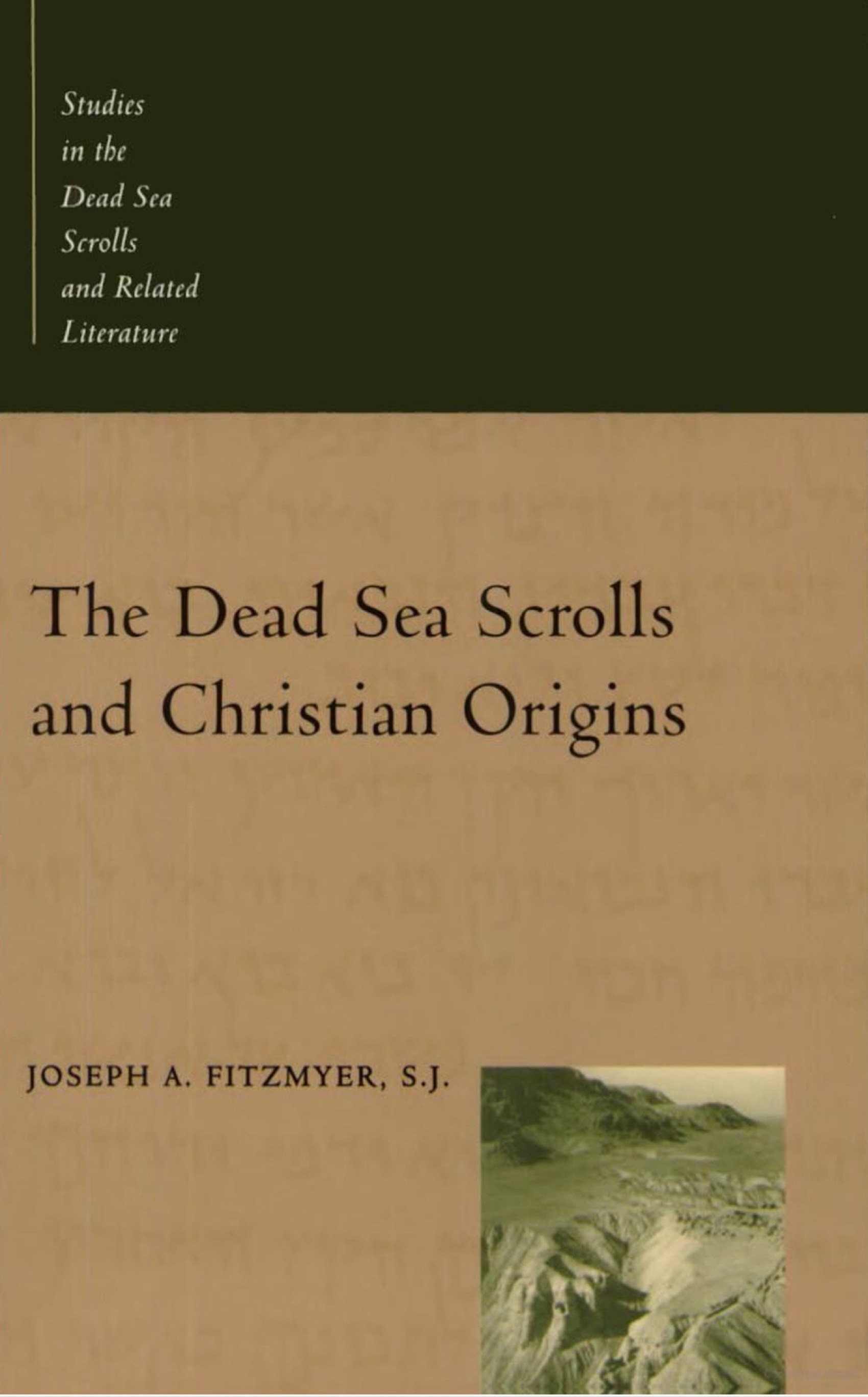The Dead Sea Scrolls and Christian Origins
Summary of The Dead Sea Scrolls and Christian Origins by Joseph A. Fitzmyer
Joseph A. Fitzmyer’s The Dead Sea Scrolls and Christian Origins explores the relationship between the Dead Sea Scrolls and early Christianity, particularly how these ancient texts provide insight into the Jewish background of the New Testament. The book is part of the Studies in the Dead Sea Scrolls and Related Literature series, aiming to clarify how the Scrolls reshape our understanding of the Bible, Judaism, and early Christian thought.
Key Themes and Structure
1. Methodological Considerations in Studying the Dead Sea Scrolls and Christianity
• Fitzmyer discusses how scholars should approach the study of the Dead Sea Scrolls in relation to early Christianity.
• He highlights how misinterpretations in the media have sometimes distorted the significance of the Scrolls.
• The book emphasizes the need for historical and textual accuracy in making connections between Qumran and Christian origins.
2. The Dead Sea Scrolls and Early Christianity
• The Qumran community shared certain theological themes with early Christians, including:
• Messianic expectations (a future priestly and royal Messiah).
• Apocalyptic beliefs about divine judgment and the end of the age.
• Communal living and strict observance of religious law, similar to aspects of early Christian communities.
• However, Fitzmyer warns against overemphasizing direct connections, noting that Christianity and Qumran diverged in key theological areas (e.g., Jesus as the suffering Messiah, universal salvation).
3. The “Son of God” Text (4Q246) and its Connection to Jesus
• One of the most debated Qumran texts, 4Q246, refers to a figure called the “Son of God.”
• Fitzmyer examines whether this phrase has parallels to the New Testament’s depiction of Jesus or if it reflects earlier Jewish expectations of a political or divine ruler.
• He concludes that while similarities exist, Qumran’s Messiah was not identical to the Christian concept of Jesus as the divine Son of God.
4. Messianism in the Dead Sea Scrolls
• The Scrolls contain diverse views on the Messiah, including expectations of multiple Messiahs (a priestly and a kingly one).
• Fitzmyer contrasts this with the New Testament’s portrayal of Jesus as a singular, suffering, and redeeming Messiah.
• He argues that while the Qumran sect looked for a future deliverer, Christianity reinterpreted messianic prophecies in light of Jesus’ life, death, and resurrection.
5. Beatitudes and Similarities Between Qumran and Jesus’ Teachings
• The Dead Sea Scrolls contain a Palestinian Jewish collection of “Beatitudes” similar to those found in Jesus’ Sermon on the Mount (Matthew 5:3-12).
• These texts suggest that the beatitude form was already present in Jewish thought, but Jesus gave them a distinct meaning related to the Kingdom of God.
6. The Aramaic Evidence for New Testament Terms (e.g., “Hosanna”)
• Fitzmyer examines Aramaic linguistic evidence to clarify how words like “Hosanna” were understood in Jewish and early Christian contexts.
• The Dead Sea Scrolls provide examples of early Aramaic usage, supporting historical accuracy in the Gospels.
7. The Role of Qumran in Jewish Sects: Essenes or Sadducees?
• The book investigates whether the Qumran community was Essene, Sadducean, or a separate Jewish sect.
• Fitzmyer leans toward the Essene hypothesis, arguing that the community’s strict legal interpretations and apocalyptic beliefs align closely with Essene traditions.
8. The “Teacher of Righteousness” and Early Christian Leaders
• The Qumran sect revered a mysterious Teacher of Righteousness, a leader who faced opposition and was seen as divinely chosen.
• Some scholars have drawn parallels between this figure and Jesus or John the Baptist, but Fitzmyer argues that these comparisons are speculative.
Conclusion
• The Dead Sea Scrolls provide valuable historical and religious context for early Christianity, shedding light on Jewish messianic hopes, eschatology, and biblical interpretation.
• However, Christianity diverged significantly from Qumran’s teachings, particularly in its understanding of Jesus as the Messiah, salvation for all people, and the role of grace.
• Fitzmyer’s work carefully distinguishes between influences and direct connections, offering a balanced, scholarly approach to the complex relationship between the Dead Sea Scrolls and Christian origins.
